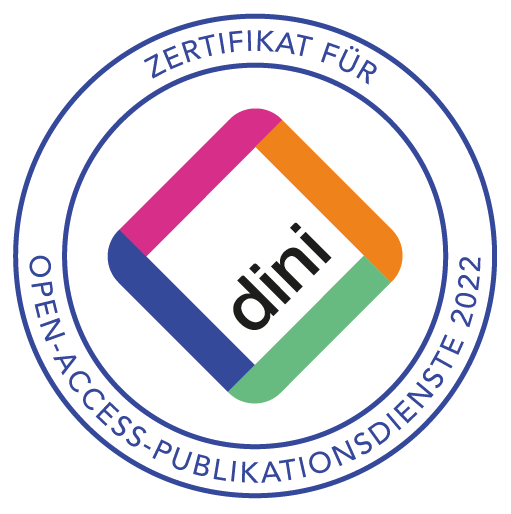- search hit 1 of 1
Investigating security issues in programmable logic controllers and related protocols
Untersuchung von IT-Sicherheitsproblemen in Speicherprogrammierbaren Steuerungen und dazugehörigen Protokollen
- Programmable Logic Controllers (PLCs) are pivotal in Critical Infrastructures (CIs) and Industrial Control Systems (ICSs), governing processes in nuclear power plants, petrochemical factories, and water treatment systems. Despite their importance, PLCs are vulnerable to security threats, notably control logic injection attacks, aiming to sabotage physical processes. This thesis delves into PLC security, analyzing vulnerabilities in non-cryptographically and cryptographically protected PLCs, particularly Siemens S7-300 and S7-1500 models.
Siemens, an automation market leader, utilizes S7-300 PLCs in millions of applications, reflecting the broader ICS security landscape. The S7-1500 line claims resistance to cyberattacks, including control logic injections. The thesis evaluates authentication in non-cryptographically protected PLCs, introducing a stealthy control logic injection attack scenario using an S7-300 PLC and S7Comm protocol.
The second part explores integrity checks in cryptographically protected S7-1500 PLCs. Findings,Programmable Logic Controllers (PLCs) are pivotal in Critical Infrastructures (CIs) and Industrial Control Systems (ICSs), governing processes in nuclear power plants, petrochemical factories, and water treatment systems. Despite their importance, PLCs are vulnerable to security threats, notably control logic injection attacks, aiming to sabotage physical processes. This thesis delves into PLC security, analyzing vulnerabilities in non-cryptographically and cryptographically protected PLCs, particularly Siemens S7-300 and S7-1500 models.
Siemens, an automation market leader, utilizes S7-300 PLCs in millions of applications, reflecting the broader ICS security landscape. The S7-1500 line claims resistance to cyberattacks, including control logic injections. The thesis evaluates authentication in non-cryptographically protected PLCs, introducing a stealthy control logic injection attack scenario using an S7-300 PLC and S7Comm protocol.
The second part explores integrity checks in cryptographically protected S7-1500 PLCs. Findings, encompassing disclosed vulnerabilities, lead to a severe control logic injection attack with a malicious interrupt block, conducted in an industrial setting using the S7-1500 and S7CommPlus protocol.
The final segment focuses on Profinet protocol security and an injection attack scenario. The study demonstrates adversaries manipulating critical data without prior knowledge, causing harm to physical processes. A real-world attack on a Profinet-based system with two S7-300 PLCs is executed.
The thesis concludes by proposing mitigation solutions, enhancing PLC and communication protocol security. This contribution elevates the security posture of millions of operating devices globally, advancing PLC security research.…


- Die Speicherprogrammierbaren Steuerungen (SPSen) sind entscheidend für kritische Infrastrukturen (KIen) und Industrielle Kontrollsysteme (IKSen). Ihre Steuerlogik regelt Prozesse in Kernkraftwerken, petrochemischen Fabriken und Wasseraufbereitungsanlagen. Leider sind sie anfällig für bösartige Bedrohungen, insbesondere Control Logic Injection-Angriffe, die katastrophale Schäden verursachen können.
Die Arbeit adressiert Sicherheitsprobleme und Schwachstellen in SPSen und ihren Protokollen, die solche Angriffe ermöglichen. Der Fokus liegt auf der Analyse der Sicherheit von nicht kryptografisch und kryptografisch geschützten SPSen, insbesondere auf den Schutzmechanismen der Steuerlogik. Siemens-Geräte, vor allem S7-300 und S7-1500, werden für Experimente genutzt, da Siemens Marktführer ist und fortschrittliche Sicherheitsmechanismen in der S7-1500 behauptet.
Der erste Teil analysiert die Authentifizierung nicht kryptografisch geschützter SPSen, inklusive eines Stealth-Logikinjektionsangriffs mit einer S7-300 und S7Comm in realerDie Speicherprogrammierbaren Steuerungen (SPSen) sind entscheidend für kritische Infrastrukturen (KIen) und Industrielle Kontrollsysteme (IKSen). Ihre Steuerlogik regelt Prozesse in Kernkraftwerken, petrochemischen Fabriken und Wasseraufbereitungsanlagen. Leider sind sie anfällig für bösartige Bedrohungen, insbesondere Control Logic Injection-Angriffe, die katastrophale Schäden verursachen können.
Die Arbeit adressiert Sicherheitsprobleme und Schwachstellen in SPSen und ihren Protokollen, die solche Angriffe ermöglichen. Der Fokus liegt auf der Analyse der Sicherheit von nicht kryptografisch und kryptografisch geschützten SPSen, insbesondere auf den Schutzmechanismen der Steuerlogik. Siemens-Geräte, vor allem S7-300 und S7-1500, werden für Experimente genutzt, da Siemens Marktführer ist und fortschrittliche Sicherheitsmechanismen in der S7-1500 behauptet.
Der erste Teil analysiert die Authentifizierung nicht kryptografisch geschützter SPSen, inklusive eines Stealth-Logikinjektionsangriffs mit einer S7-300 und S7Comm in realer Industrieumgebung.
Im zweiten Teil wird der Integritätscheck kryptografisch geschützter SPSen (S7-1500) untersucht, inklusive eines schwerwiegenden Logikinjektionsangriffs mit S7-1500 und S7CommPlus.
Der letzte Teil fokussiert auf die Profinet-Kommunikation zwischen SPSen und anderen Geräten. Ein Angriffsszenario zeigt, dass Angreifer ohne Vorkenntnisse kritische Daten manipulieren können. Ein Angriff auf ein Profinet-System mit zwei S7-300 SPSen veranschaulicht die Realität.
Die Arbeit schließt mit Lösungsvorschlägen zur Erhöhung der Sicherheit von SPSen und deren Kommunikationsprotokollen. Diese Ergebnisse tragen signifikant zur Forschung im Bereich der SPS-Sicherheit bei und verbessern die Sicherheit von Millionen von Industriegeräten weltweit.…


| Author: | Wael AlsabbaghORCiD |
|---|---|
| URN: | urn:nbn:de:kobv:co1-opus4-66114 |
| DOI: | https://doi.org/10.26127/BTUOpen-6611 |
| Referee / Advisor: | Prof. Dr. Peter LangendörferORCiD, Prof. Dr.-Ing. Ulrich Berger, Prof. Dr. Dimitrios SerpanosORCiD |
| Document Type: | Doctoral thesis |
| Language: | English |
| Year of Completion: | 2023 |
| Date of final exam: | 2023/12/20 |
| Release Date: | 2024/01/25 |
| Tag: | Control Logic Injection-Angriffe; Cyberangriffe; Cybersischerheit; False Data Injection-Angriffe; Speicherprogrammierbare Steuerungen Control logic injection; Cyberattacks; Cybersecurity; False data injection; Programmable logic controllers |
| GND Keyword: | Kritische Infrastruktur; Kontrollsystem; Speicherprogrammierte Steuerung; SIMATIC S7-300; SIMATIC S7-1500; Computersicherheit; Cyberattacke |
| Institutes: | Fakultät 1 MINT - Mathematik, Informatik, Physik, Elektro- und Informationstechnik / FG Drahtlose Systeme |
| Licence (German): |  Keine Lizenz vergeben. Es gilt das deutsche Urheberrecht. Keine Lizenz vergeben. Es gilt das deutsche Urheberrecht. |


